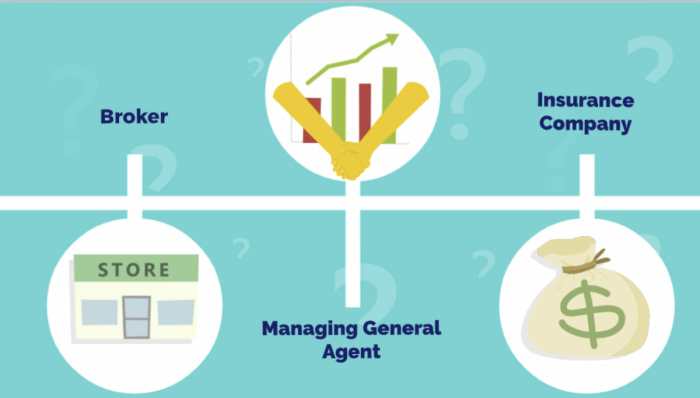Welcome to the world of insurance, where managing directors play a pivotal role in shaping the success of agencies. Join us as we delve into the intricacies of leading and managing an insurance agency, exploring key qualities, effective sales and marketing strategies, the significance of customer service, and the art of risk management.
Discover how to navigate financial intricacies, comply with regulations, and leverage technology for growth. Unlock the secrets of building strong partnerships, nurturing a culture of continuous learning, and setting a clear vision for your agency’s future.
From leadership and management to financial management and compliance, we’ll uncover the secrets of running a successful insurance agency. Learn how to motivate your team, target the right customers, and handle customer complaints with grace. Discover the art of assessing and mitigating risks, budgeting effectively, and staying up-to-date with regulatory changes.
We’ll also explore the role of technology in driving efficiency and innovation, and the importance of networking and building partnerships for growth.
Leadership and Management
In the dynamic insurance industry, an effective managing director is the cornerstone of a successful agency. These leaders possess a unique blend of qualities that enable them to steer their teams toward achieving exceptional results.
Key qualities of an effective managing director in an insurance agency include:
- Visionary Leadership: The ability to articulate a compelling vision for the agency and inspire others to embrace it.
- Strategic Thinking: A knack for analyzing market trends, identifying opportunities, and formulating actionable strategies.
- Team Building: The skill to assemble a diverse and high-performing team, fostering a culture of collaboration and mutual support.
- Communication Excellence: The ability to communicate effectively with stakeholders at all levels, building strong relationships and trust.
- Data-Driven Decision-Making: The capacity to leverage data and analytics to inform decisions, ensuring they are grounded in evidence.
Managing and Motivating a Team of Insurance Agents
Managing and motivating a team of insurance agents requires a delicate balance of leadership, empathy, and strategic planning. Effective managing directors employ various techniques to achieve this:
- Setting Clear Goals: Establishing specific, measurable, achievable, relevant, and time-bound (SMART) goals for the team and individual agents.
- Delegating Tasks: Recognizing individual strengths and assigning tasks accordingly, empowering agents to take ownership of their responsibilities.
- Providing Continuous Feedback: Offering regular constructive feedback to agents, helping them identify areas for improvement and celebrate their successes.
- Fostering a Positive Work Environment: Creating a supportive and inclusive work environment where agents feel valued, respected, and motivated to excel.
- Recognizing and Rewarding Achievements: Acknowledging and rewarding agents’ accomplishments, boosting morale, and encouraging ongoing high performance.
Strategies for Setting Clear Goals, Delegating Tasks, and Monitoring Performance
Effective managing directors employ well-defined strategies to set clear goals, delegate tasks, and monitor performance:
- Goal-Setting Framework: Utilizing a structured framework, such as the SMART criteria, to ensure goals are specific, measurable, achievable, relevant, and time-bound.
- Task Delegation Matrix: Developing a matrix that matches individual agent strengths with specific tasks, optimizing team performance.
- Performance Monitoring System: Establishing a robust system for tracking and monitoring agent performance, identifying areas for improvement and celebrating successes.
- Regular Performance Reviews: Conducting regular performance reviews with agents, providing feedback, and setting new goals for continuous improvement.
- Data-Driven Insights: Leveraging data and analytics to gain insights into agent performance, identify trends, and make informed decisions.
Sales and Marketing

A robust sales and marketing strategy is essential for the success of an insurance agency. It enables agencies to reach their target audience, generate leads, and convert them into paying customers.
Identifying and Targeting the Right Customer Base
Understanding your target customer base is crucial for effective sales and marketing. Conduct thorough market research to gather insights into your customers’ demographics, needs, and pain points. Segment your audience based on these factors to tailor your marketing messages and strategies accordingly.
Developing and Executing Effective Marketing Campaigns
Create a comprehensive marketing plan that Artikels your goals, target audience, key messages, and channels. Utilize a mix of traditional and digital marketing strategies to reach your target audience effectively. Track the performance of your campaigns and make necessary adjustments to optimize results.
- Content Marketing: Create valuable and engaging content that resonates with your target audience. Utilize blogs, articles, infographics, videos, and social media posts to educate and inform potential customers.
- Search Engine Optimization (): Optimize your website and content for relevant s to improve organic search visibility and drive traffic to your website.
- Social Media Marketing: Engage with your target audience on social media platforms. Share valuable content, respond to inquiries, and run targeted ads to generate leads and drive traffic to your website.
- Email Marketing: Build an email list and send regular newsletters, promotional offers, and educational content to nurture leads and drive conversions.
- Paid Advertising: Utilize pay-per-click (PPC) advertising platforms like Google AdWords and social media advertising to display targeted ads to your ideal customers.
Customer Service

In the insurance industry, exceptional customer service is the backbone of success. It’s the key to building strong relationships, retaining clients, and driving growth.
Providing excellent customer service means going above and beyond to meet the needs of your clients. It means being responsive, attentive, and proactive in addressing their concerns. It also means being knowledgeable about your products and services so that you can provide expert advice and guidance.
Building and Maintaining Strong Customer Relationships
Building and maintaining strong customer relationships is essential for the long-term success of any insurance agency. Here are some tips for doing just that:
- Be proactive: Reach out to your clients regularly to check in and see how they’re doing. This shows that you’re interested in their well-being and that you’re there to help them with any insurance needs they may have.
- Be responsive: When your clients reach out to you, respond promptly and professionally. This shows that you value their time and that you’re committed to providing them with the best possible service.
- Be knowledgeable: Make sure you’re up-to-date on the latest insurance products and services so that you can provide your clients with expert advice and guidance. This will help them make informed decisions about their coverage and ensure that they’re getting the best possible value for their money.
- Be personal: Get to know your clients on a personal level. This will help you build rapport and trust, which will make them more likely to do business with you in the future.
Handling Customer Complaints and Resolving Disputes Effectively
Even the best insurance agencies will occasionally receive customer complaints. It’s how you handle these complaints that will determine whether you retain your clients or lose them to the competition.
Here are some tips for handling customer complaints and resolving disputes effectively:
- Listen actively: When a client is complaining, the most important thing you can do is listen actively. This means paying attention to what they’re saying, both verbally and nonverbally. It also means asking clarifying questions to ensure that you understand their concerns.
- Empathize: Once you understand the client’s concerns, it’s important to empathize with them. This doesn’t mean that you have to agree with them, but it does mean that you need to understand their perspective and why they’re upset.
- Apologize: Even if you don’t believe that you’re at fault, it’s important to apologize to the client for their inconvenience. This shows that you’re taking their concerns seriously and that you’re committed to resolving the issue.
- Take action: Once you’ve apologized, it’s important to take action to resolve the issue. This may involve issuing a refund, replacing a damaged item, or simply providing the client with more information about their policy.
- Follow up: Once you’ve resolved the issue, it’s important to follow up with the client to make sure that they’re satisfied. This shows that you’re committed to providing them with the best possible service.
Risk Management

Risk management is a crucial aspect of insurance agency operations, as it involves identifying, assessing, and mitigating potential risks associated with insurance policies and business operations. Effective risk management strategies help agencies protect their financial stability, reputation, and policyholder satisfaction.
To ensure sound risk management practices, agencies should:
Risk Assessment
Conduct thorough risk assessments to identify and evaluate potential risks that may arise from underwriting policies, investment decisions, operational processes, and regulatory changes. This involves analyzing historical data, industry trends, and external factors that could impact the agency’s financial performance and solvency.
- Regularly review and update risk assessments to stay current with evolving risks and changes in the insurance landscape.
- Prioritize risks based on their likelihood and potential impact to determine which ones require immediate attention and resources.
- Establish risk tolerance levels to define the acceptable level of risk the agency is willing to take in various areas of its operations.
Risk Mitigation
Develop and implement strategies to mitigate identified risks and reduce their potential impact on the agency’s financial stability and reputation. Risk mitigation measures may include:
- Diversifying insurance portfolios to spread risks across different types of policies, industries, and geographic regions.
- Implementing underwriting guidelines and procedures to assess the risk profile of policyholders and minimize adverse selection.
- Establishing reinsurance arrangements to share risks with other insurance companies and reduce potential losses.
- Investing in robust risk management systems and technologies to monitor and manage risks in real-time.
- Conducting regular stress tests to assess the agency’s financial resilience under various economic and market conditions.
Risk Monitoring and Control
Continuously monitor and control risks to ensure that risk management strategies are effective and that emerging risks are promptly identified and addressed. This involves:
- Establishing a risk management committee or function responsible for overseeing risk management activities and reporting to the agency’s board of directors.
- Implementing internal controls and audit procedures to ensure compliance with regulatory requirements and to detect and prevent fraud or errors.
- Regularly reviewing and updating risk management policies and procedures to reflect changes in the regulatory landscape and industry best practices.
By adopting a proactive and comprehensive approach to risk management, insurance agencies can enhance their financial stability, protect their reputation, and deliver superior service to policyholders.
Financial Management

In an insurance agency, sound financial management is the cornerstone of long-term success and sustainability. Effective budgeting, forecasting, and cash flow management ensure the agency’s financial health and ability to meet its obligations to policyholders, employees, and stakeholders.
Here are some tips to help you manage your agency’s finances effectively:
Budgeting
- Create a detailed budget: Develop a comprehensive budget that Artikels all anticipated income and expenses for the year. Include categories for premiums, commissions, salaries, marketing costs, and other operating expenses.
- Monitor and adjust: Regularly review your budget and compare actual results to projections. Make adjustments as needed to ensure you stay on track and achieve your financial goals.
Forecasting
- Analyze historical data: Use historical data on premiums, claims, and expenses to forecast future financial performance. This helps you identify trends and make informed decisions about resource allocation.
- Consider economic factors: Take into account economic conditions, interest rates, and market trends that may impact your agency’s financial performance.
Cash Flow Management
- Manage receivables: Implement efficient billing and collection processes to ensure timely payments from policyholders. Offer multiple payment options to make it convenient for customers to pay their premiums.
- Control expenses: Regularly review your expenses and identify areas where you can save without compromising the quality of your services.
Optimizing Profitability
- Pricing strategy: Set competitive premium rates that generate sufficient revenue while remaining attractive to customers. Regularly review your pricing strategy to ensure it aligns with market conditions.
- Expense control: Implement cost-saving measures without sacrificing the quality of your services. Negotiate favorable terms with vendors and suppliers, and explore opportunities for automation and efficiency improvements.
Minimizing Expenses
- Staffing: Hire and retain talented employees, but avoid overstaffing. Cross-train employees to handle multiple tasks and optimize resource utilization.
- Technology: Invest in technology that streamlines operations, improves efficiency, and reduces manual labor. This can lead to long-term cost savings and improved productivity.
Compliance and Regulations

In the insurance industry, compliance with regulations and laws is of paramount importance to safeguard the interests of policyholders, maintain ethical standards, and ensure the financial stability of insurance companies. Staying up-to-date with regulatory changes and implementing effective compliance programs are essential for insurance agencies to operate responsibly and avoid potential legal and financial risks.
Understanding the Regulatory Landscape
Insurance regulations are complex and vary across jurisdictions. It is crucial for insurance agencies to have a thorough understanding of the applicable laws and regulations that govern their operations. This includes staying informed about changes in insurance laws, regulations, and industry standards.
Establishing a Compliance Program
Developing and implementing a robust compliance program is vital for insurance agencies. This program should Artikel the agency’s commitment to compliance, define roles and responsibilities, and establish clear policies and procedures for adhering to regulatory requirements.
- Assign a Compliance Officer: Appoint a dedicated compliance officer responsible for overseeing the compliance program and ensuring its effectiveness.
- Conduct Regular Compliance Reviews: Periodically review the compliance program to ensure it remains up-to-date and effective. Make necessary adjustments to address changes in regulations or industry practices.
- Provide Compliance Training: Train employees on the agency’s compliance policies and procedures. This training should cover topics such as regulatory requirements, ethical conduct, and conflict of interest.
Strategies for Compliance Success
Insurance agencies can adopt various strategies to enhance their compliance efforts and mitigate risks.
- Leverage Technology: Utilize technology to automate compliance tasks, track regulatory changes, and monitor compliance performance. This can help streamline compliance processes and improve efficiency.
- Foster a Culture of Compliance: Create a culture where compliance is valued and ethical behavior is encouraged. Encourage employees to report any suspected violations or concerns promptly.
- Engage with Regulators: Maintain open communication with regulatory authorities. Attend industry conferences, workshops, and seminars to stay informed about regulatory developments and build relationships with regulators.
Technology and Innovation

The insurance industry is undergoing a significant transformation driven by technological advancements. Technology has the potential to revolutionize the way insurance companies operate, improve efficiency, and enhance customer experiences. Here are tips for leveraging technology to stay ahead in the industry:
Embracing Digital Transformation
- Accelerate the adoption of digital technologies to enhance customer engagement, streamline operations, and improve decision-making.
- Utilize data analytics to gain insights into customer behavior, risk assessment, and fraud detection.
- Implement artificial intelligence (AI) and machine learning (ML) to automate tasks, improve underwriting accuracy, and personalize insurance products.
- Develop mobile apps and online platforms to provide convenient and seamless customer experiences.
Innovation in Product Development
- Continuously innovate and develop new insurance products that cater to evolving customer needs and market trends.
- Leverage technology to create customizable and tailored insurance policies that address specific risks and requirements.
- Explore opportunities in InsurTech startups and collaborate with technology companies to bring innovative solutions to the market.
Cybersecurity and Data Protection
- Invest in robust cybersecurity measures to protect sensitive customer data and prevent cyberattacks.
- Implement comprehensive data protection policies and procedures to ensure compliance with regulations and industry standards.
- Educate employees on cybersecurity best practices and raise awareness about potential threats.
Importance of Continuing Education and Training
In the ever-evolving insurance industry, staying updated with the latest knowledge and skills is crucial for insurance agents and staff. Continuing education and training programs enable them to:
- Enhance their understanding of insurance products, regulations, and industry trends.
- Stay abreast of changes in customer needs and preferences.
- Improve their sales and customer service skills.
- Adapt to new technologies and digital tools.
- Maintain professional certifications and licenses.
By investing in continuing education and training, insurance agencies can ensure that their employees possess the necessary knowledge and skills to provide excellent service to clients, drive business growth, and navigate the evolving regulatory landscape.
Developing and Implementing Effective Training Programs
To develop and implement effective training programs, insurance agencies should:
- Identify training needs through regular assessments of employees’ skills and knowledge gaps.
- Design training programs that are tailored to the specific needs of the agency and its employees.
- Utilize a variety of training methods, including instructor-led training, online courses, workshops, and on-the-job training.
- Ensure that training programs are engaging and interactive to maximize learning and retention.
- Provide ongoing support and encouragement to employees to participate in training programs.
- Regularly evaluate the effectiveness of training programs and make adjustments as needed.
Strategies for Supporting Professional Development
Insurance agencies can support the professional development of their employees by:
- Encouraging employees to pursue professional certifications and designations.
- Providing financial assistance for tuition, books, and other training expenses.
- Offering flexible work arrangements to accommodate employees’ training schedules.
- Recognizing and rewarding employees for their professional development efforts.
- Creating a culture of learning and continuous improvement within the agency.
By supporting professional development, insurance agencies can help their employees reach their full potential, enhance their job satisfaction, and contribute to the overall success of the agency.
Networking and Partnerships

In the insurance industry, building relationships and establishing strategic partnerships is vital for growth and success. By connecting with other insurance professionals, you can expand your reach, access new markets, and offer a wider range of products and services to your clients.
Developing Strong Relationships
To develop strong relationships with other insurance professionals, it’s essential to:
- Attend industry events and conferences to meet and network with peers.
- Join professional organizations and participate in their activities.
- Get involved in local business groups and chambers of commerce.
- Refer clients to other insurance professionals when appropriate.
- Be willing to help others and share your knowledge and expertise.
Leveraging Partnerships to Grow the Business
Strategic partnerships can help you grow your business by:
- Expanding your product and service offerings to meet the needs of a broader range of clients.
- Reaching new markets and customer segments that you couldn’t reach on your own.
- Increasing your sales and revenue through cross-selling and co-marketing efforts.
- Improving your operational efficiency and reducing costs through shared resources and expertise.
- Enhancing your reputation and credibility by associating with other reputable organizations.
10. Vision and Planning

In the dynamic and evolving insurance landscape, a clear vision and strategic plan are indispensable for an insurance agency to thrive and achieve its goals. A well-defined vision serves as a roadmap for the entire agency, ensuring that every team member works in tandem towards a common objective.
This section provides insights into the significance of having a robust vision and strategic plan, offers tips for developing and implementing a strategic plan, and shares strategies for monitoring and adjusting the strategic plan as needed.
Establishing a Clear Vision
A compelling vision statement is an essential starting point for any insurance agency. It should succinctly capture the agency’s core values, goals, and aspirations. A clear vision statement provides direction, focus, and inspiration to the entire agency, aligning their efforts towards a common purpose.
Formulating a Strategic Plan
A strategic plan is a detailed roadmap that Artikels the steps and actions required to realize the agency’s vision. It should address key areas such as target market, service offerings, operational procedures, marketing and sales strategies, and financial projections. A well-crafted strategic plan provides a framework for day-to-day operations, ensuring that the agency remains on track and adaptable to changing circumstances.
Monitoring and Adjusting the Strategic Plan
In a rapidly evolving insurance landscape, it’s crucial to monitor and adjust the strategic plan as needed. This involves regularly reviewing the plan’s objectives and strategies, tracking progress, and making necessary adjustments based on feedback, market trends, and emerging opportunities.
A proactive approach to monitoring and adjusting the strategic plan ensures that the agency stays agile, responsive, and well-positioned to seize new growth opportunities.
Outcome Summary
In the dynamic world of insurance, managing directors are the architects of success, shaping the destiny of their agencies. As you embark on this journey, remember that effective leadership, customer-centricity, and a commitment to excellence are the cornerstones of a thriving insurance agency.
Embrace the challenges, seize the opportunities, and let your passion for the industry guide you towards new heights of achievement.
FAQ
What are the key qualities of an effective managing director in an insurance agency?
Effective managing directors possess a blend of leadership, strategic thinking, and industry expertise. They are adept at motivating teams, setting clear goals, and driving performance. They also have a deep understanding of the insurance landscape, regulatory requirements, and customer needs.
How can I improve sales and marketing efforts in my insurance agency?
To boost sales and marketing, focus on identifying and targeting the right customer base. Develop compelling marketing campaigns that resonate with your target audience. Leverage technology to streamline processes and track customer interactions. Continuously monitor and adjust your strategies based on data and feedback.
What are the best practices for building strong customer relationships in the insurance industry?
Building strong customer relationships is paramount in the insurance industry. Provide exceptional customer service by being responsive, empathetic, and proactive. Regularly communicate with customers, addressing their concerns and providing valuable advice. Personalize interactions to foster trust and loyalty.
How can I effectively manage risks associated with insurance policies?
Effective risk management involves identifying, assessing, and mitigating potential risks. Implement robust underwriting processes to evaluate risks accurately. Regularly review and update your risk management strategies based on changing market conditions and regulatory requirements. Invest in technology and training to enhance your agency’s ability to manage risks.
What are the key strategies for optimizing profitability and minimizing expenses in an insurance agency?
To optimize profitability, focus on increasing revenue and controlling costs. Implement data-driven pricing strategies to ensure adequate premiums while remaining competitive. Streamline operations to reduce expenses. Invest in technology to improve efficiency and productivity. Regularly review and adjust your financial strategies based on market trends and performance.



